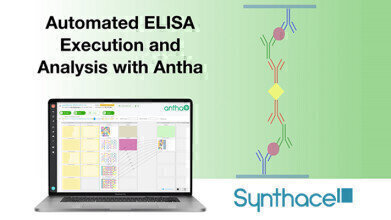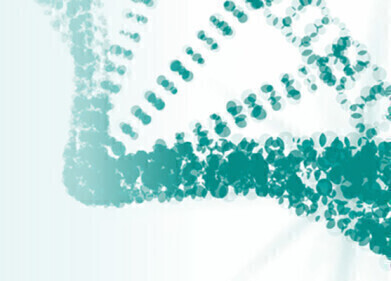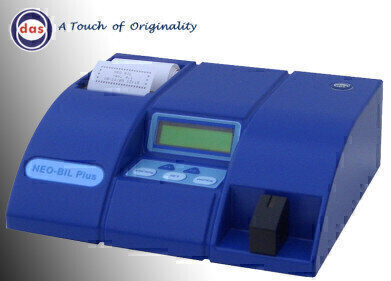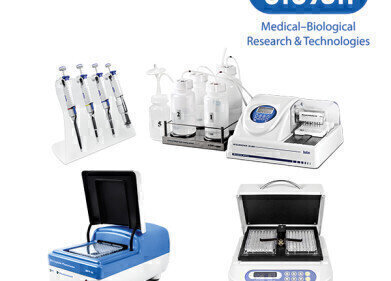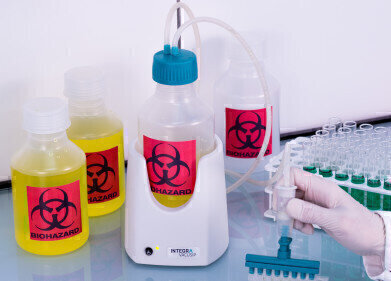ELISA
Innovative Approach to ELISA Automation Announced by Leading Computer-Aided Biology Company
Oct 14 2020
Synthace Ltd, the company behind Antha, the cloud-based software platform for automating and improving the success rate of biological processes, has launched a new software capability for streamlining a fundamental workhorse of biochemistry: the enzyme-linked immunosorbent assay (ELISA). Antha now allows researchers to flexibly design and execute automated ELISA protocols and automatically gather, structure, and analyse the data in an accessible, in-depth format, saving researchers valuable time from design to data acquisition.
A Powerful Detection Tool
ELISA protocols are ubiquitous in life science research but feature prominently in drug discovery, pathology (plant and animal), medical diagnostics, and quality control. Essentially, ELISAs use specific antibodies, like those generated by our immune system, to detect antigens and give off a detectable signal using an enzyme such as horseradish peroxidase. Without these assays, scientists would not be able to rapidly identify viral proteins, like in the HIV test, or detect potential allergens or toxins in food. An ELISA test for coronavirus was one of the first antibody detection methods available at the outset of the pandemic.
Shifting Bottlenecks and Reducing Burdens
ELISA protocols have repetitive liquid handling steps that lend themselves easily to automation. These complex protocols are often performed on multiple pieces of equipment that are not always physically connected. This creates several barriers: the scientist must know how to program all of the machines involved as well as acquire and process the data from them individually. Ultimately, automating ELISA assays reduces the time spent on liquid handling, but creates two new bottlenecks in programming and data handling.
To reduce the programming and data handling burdens for researchers, Sythace’s Antha acts as a single point of contact to perform the assay and acquire results. Antha is device-agnostic, with an intuitive user interface that allows scientists to design a flexible, end-to-end protocol and test it step-by-step in silico before sending it to the machines involved.
Changing How We Gather Data
In addition to showing the user a preview of the experiment, Antha automatically gathers tracks and structures data generated during the assays, even from non-integrated devices. At the conclusion of the protocol, Antha will generate a complete data analysis and visualisation of these data automatically, saving time and resources spent gathering data and formatting it manually.
Clients trialling the new ELISA feature in Antha reported:
70% reduction in method programming time
81% reduction in assay design and analysis time
ELISAs are a critical assay across many fields within life science. As highly sensitive assays, they require precision and reproducibility that automation can provide. Flexible end-to-end approaches for ELISAs help scale key assays across many sectors, including biopharmaceutical development.
“This addition to our Antha platform will enable scientists to perform key assays reliably and reproducibly at scale. Most importantly, this will allow scientists to spend less time in the lab, enabling them to design better experiments, explore new insights, and ultimately increase the impact of their research,” concluded Dr Tim Fell, CEO of Synthace.
More information online
Digital Edition
Lab Asia Dec 2025
December 2025
Chromatography Articles- Cutting-edge sample preparation tools help laboratories to stay ahead of the curveMass Spectrometry & Spectroscopy Articles- Unlocking the complexity of metabolomics: Pushi...
View all digital editions
Events
Jan 21 2026 Tokyo, Japan
Jan 28 2026 Tokyo, Japan
Jan 29 2026 New Delhi, India
Feb 07 2026 Boston, MA, USA
Asia Pharma Expo/Asia Lab Expo
Feb 12 2026 Dhaka, Bangladesh
